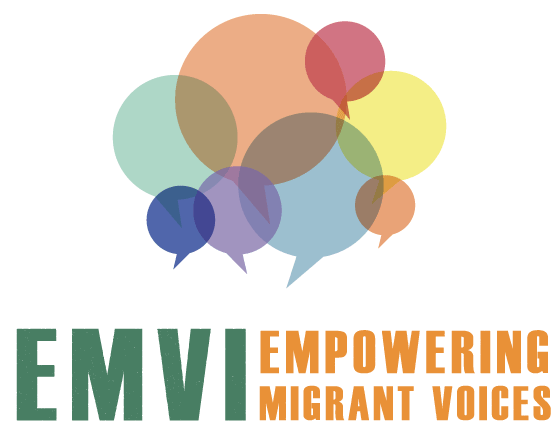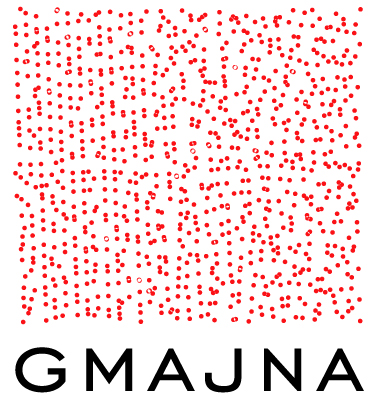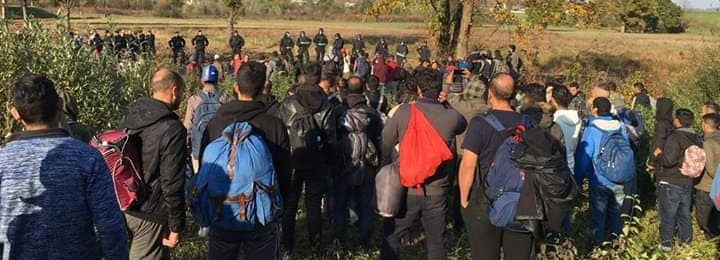EMVI Focus Groups: Is the Process of Integration a Political Struggle?

In Ljubljana, on June 27 and 28, 2022, members of the EMVI project consortium Gmajna Cultural Association and Peace Institute held a series of 4 focus groups on a national level with 21 representatives from the Government Office for the Support and Integration of Migrants (UOIM), Human Rights Ombudsman of Slovenia, International Organization for Migration (IOM), UNHCR, the public institution for adult education Cene Štupar, civil initiative Infokolpa, Slovene Institute for Migration ZRC SAZU, non-governmental organisations (Slovene Philanthropy, Društvo Odnos, SKC Danilo Kiš, Društvo Medkulturni dialog, SLOGA), and migrant communities (asylum seekers, refugees, non-EU international students, migrants with permanent residence). The focus groups aimed to verify and specify local needs for capacity building related to the political participation of migrants, and to evaluate existing participatory methods and models.
“Slovenia can become a more cohesive society if it helps migrants to have better ties with the country. Because when you are excluded you don’t do anything for the country. When you feel your word counts, then you participate and contribute. Actually, this is the vision of Slovenia. It is our responsibility. I’m from an NGO. It is on us to activate people,” a refugee due to political opinion/affiliation.
During the focus groups, several challenges faced by migrants when trying to exercise their rights regarding political participation, representation and integration were identified. It was determined that the key element of inclusion and political participation is fluency in the local language. Language proficiency enables access to the labour and real estate markets and facilitates effective communication with public administration (social services, driver’s licence).
“In Slovenia, I got 180 language hours four years ago and later an additional 120 hours. I go to Slovene Philanthropy once per week. I must now read, speak, write, and understand to get through the A1 exam. If I don’t I get removed from the employment service and lose my social support. What does this mean? Go, just go. I have children - where can I go,” a refugee studying for the Slovenian A1 language exam.
“In Slovenia, students’ lives are even worse than refugees’ - students can’t have insurance, dormitory, they can’t have anything. They must pay a lot of money to the university. After two years, I could only find Slovene Philanthropy to study the Slovenian language for A1. They helped me but the government didn’t. I couldn’t find another institute to learn Slovenian. If you have the money you can go to an institute. For one semester they charge 600 EUR for A1 or A2 level,” an international student from the Middle East.
Participants unanimously expressed that available government-funded Slovenian language courses are not sufficient for migrants (non-ex-YU) to achieve Slovenian language proficiency. Language courses are not provided for some migrant groups (international students). It was proposed that the number of hours of subsidized language courses available to migrants be increased and offered to all migrant groups. Alternative language teaching models (for example certified online language courses and DVDs) should be provided as well.
The participants evaluated available structures facilitating the political participation of migrants in Slovenia. Slovenian government bodies at the national state level concerned with foreigners and migration lack sufficient migrant representation. At the municipal and local levels, no migrant bodies are mandated even though there is a demand for them by migrants, local authorities, and public institutions. Participants expressed a need for migrant representation in such bodies to facilitate integration and inclusion. Especially at the local level, an increase in the number of certified cultural mediators would be beneficial as well.
“Someone who has not gone through something can’t best explain what is the situation. Yes, the NGOs are doing their best. But to me, their best is not good enough because they are working on what they heard or saw. But the person who can take good action is the person who has gone through the situation. All that this person needs is the backup of someone who has a full idea of the field. So, the idea of creating a migrant body that is made of migrants is the best. All that this body needs is the backup of NGOs who already have some connections and some idea of how to guide it to the right destination,” an asylum seeker.
As a result of the focus groups, an invitation was extended to the Ministry of Interior of Slovenia to include the migrant association Društvo Medkulturni dialog (a participant of the focus groups) in the recently formed working body of the ministry. The ministry accepted the invitation. The newly formed body of the ministry alleges it will tackle various migration issues in Slovenia to renew migration policies in dialogue with civil society. Some of the EMVI project goals concerning inclusion and representation are thereby being achieved.
Slovenia is the only country in the EMVI project consortium that grants voting rights to third-country nationals (migrants with permanent residence permits). However, not all migrants with permanent residence know this right or exercise it. Many are not familiar with the programmes for municipal/local elections, candidate lists, and the political opinions candidates represent. More interaction between migrants and political actors would enable a more informed and meaningful engagement of migrants in the political community. Questions remain regarding the possibility of migrants with permanent residence being political candidates.
“You fight for your community and build it up. Political participation is a long process when you unite on different problems. You work, find out what kind of problems you have, together you speak up, and find allies and supporters. You go to the municipality or the government to talk about these concrete problems. Sometimes the problems are solved, sometimes they’re not. Political participation is a moment of visibility. You show yourself and speak up,” a migrant with a permanent residence permit.
Often migrants lack information about their rights and responsibilities, the civic process, and participatory tools available to them to effectively represent themselves as political subjects. Participants expressed that migrants must fulfil political participation with knowledge about political issues and processes. Civic education empowers migrants to articulate their needs, be active in the (political) community and be more effective in achieving their goals. With language classes, a maximum of 30-course hours are offered to refugees on Slovenian culture, history, and constitutional order. However, the program of the civics course should be revised and if necessary adjusted to more closely meet the needs of migrants.
Migrants expressed some reservations and fears about their political engagement. In their view, it could attract unwanted attention from the public. Issues regarding migration are often politicised, subject to change under succeeding governments, and in extreme cases weaponized. This can be perceived as a threat by migrants trying to integrate and navigate the host community to sustain themselves (and their families).
“When you enter the asylum home the first sign you see is: Be mindful of what you say outside. It will have an impact on your decision. With those words, they capture many of us. We feel unsafe to say what we think has to be done outside politically. This point really killed the spirit. It would take someone who is a warrior to speak his mind without fear, careless of what he or she can experience later on. Many wish to voice their political opinion but they are afraid of what will happen later on,” an asylum seeker.
In this regard asylum seekers are especially vulnerable. They fear public political engagement could negatively influence the outcome of their application for international protection. Questions regarding the possibility of political participation beyond the voting right of national states were therefore addressed.
Funders:
The EMVI Project is funded by the European Union’s Asylum, Migration
and Integration Fund. The content of it represents the views of the EMVI
Project Partnership only and is its sole responsibility. The European
Commission does not accept any responsibility for use that may be made
of the information it contains.



